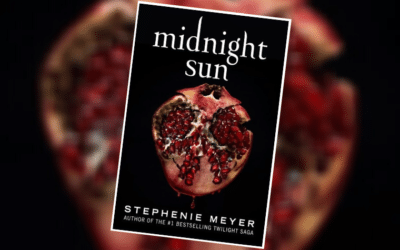Editors Note: When we searched for “Feminist” images to accompany today’s post, they were all of Beyonce. So we went with it.
With San Diego Comic Con around the corner, now is an excellent time to reflect on a recent book on geek feminism and culture.I freely admit – I wanted to be wowed by The Geek Feminist Revolution by Kameron Hurley. I was raised on old episodes of Star Trek, played with Star Wars toys, and longed for more significant women in my favorite genres. Now, I’m a grown-up geek, playing tabletop games and arguing with my husband over who gets to play Dragon Age on the desktop after the kids go to bed. I wanted Hurley’s words to dig down into my own geek feminist psyche and speak truth. In some ways, it succeeded with flying colors. On others, it fell a little short. This book, on the surface, is about writing, the media, and geek culture. Under all the layers, it’s about how we create and consume what we do and how we think, or fail to think, about those things. I adored it. Mostly.
The Geek Feminist Revolution is a collection of essays by Hugo award winning sci-fi author Kameron Hurley. Hurley is known for gritty female protagonists and her willingness to speak out online. Her language in this book is straightforward, honest, and deeply moving.
I the first section of the book, Hurley examines the brutal, soul-crushing business that is writing and publishing. Writing is a back-drop for many of the essays in this book. In the beginning it’s all about writing, how hard it is, how much failure you face, how we get those worlds in our heads on paper, and how we handle the response of people who read the things we create. Hurley tells us that the most important thing to being a successful writer is persistence and I could not agree more. She urges writers to work harder and remember that we are not writing alone. Most importantly, she asks us to take ownership of what we create and apologize if needed.

She continually, throughout the book, explains that there is absolutely no reason why we should not write books that reflect the actual world we live in, a world filled with men AND women of all shapes and colors. Stories with people all along the sexual continuum. Not all heroes are white males and we need to stop creating them that way and seeing them that way as consumers. In this context, Hurley talks about the erasure of women and minorities from public spaces and media.
Hurley uses writing to launch into a much bigger discussion of online behaviour, women in gaming, and geek culture. She explores the damage this does both to the individuals and the community and calls us all to be better. To both choose to act with kindness and to not allow a hateful few to define the things we love. Her repeated admonition to be kind applies to all areas of life.
There were countless times while reading this book that I wanted to wave my hand in the air and shout, ”Amen!” (I’m a southern girl) because Hurley’s examination of how we erase women from public spaces, both physical and virtual, are things that I, as a woman, have seen and experienced in my own life.

Her advice in the midst of all this erasure is to implore us to exist as our true selves and to create as ourselves. She says, “you going out into the world when it wants to shut you up is, itself, an act of resistance.” We have to use our own voices and tell our own stories so that others do not do it for us. Hurley also says, “Sometimes living, and speaking aloud us the most subversive act one can manage.”
I underlined and commented all over my copy of this book and most of the time I did it with a full heart and a renewed determination to be better.
Obviously, I loved this book. I loved the call to arms that Hurley flings at the feet of women. I want to answer the challenge and I want to impress upon others the importance of living and speaking authentically.
There is one area that I feel fell short. Without a doubt, Hurley champions choice, lifestyle, and living as the expression of your authentic self, but I felt that there was little room in the revolution for women (or men) who pursue traditional roles.
This is not a new struggle for feminism. It has always struggled when individuals take their new freedom and choices and choose to stay within the confines of traditional roles. Even when that choice is made with foresight and knowledge of what that choice has cost. As a writer, a hetro woman, and a Christian in a traditional family unit, I have taken all my knowledge and experience and chosen a traditional role. This is not something that most feminists celebrate, in fact it is sometimes cause for ridicule.

Hurley does not ridicule this choice, but neither does she discuss this tendency to dismiss or ridicule the traditional. What she does is almost as dangerous – she completely ignores it.
There has been a strong resurgence of female dominated areas of pop culture. You are here at TN reading and this is a female dominated observation of pop-culture.
We can see an example of how this plays out within the Romance genre. Romance and all of its subgenres continue to be the highest grossing genres in publishing. These genres have fought to reclaim feminine sexuality in both traditional and nontraditional roles. While the genre is still dominated by books that end in a male/female pairing, a wedding, and a baby, there is a rising tide of alternative pairings and happy for nows especially with self-publishing. Romance continues to have to fight for validity in wider culture and is still often dismissed as mommy porn which makes me want to flip some tables.
I believe the claiming of sexuality within traditional roles, both in reality and in culture, has led women (and men) to be able to more freely choose non-traditional roles. This is feminism at its core – the ability to have equality and choice – and I think this is nuance that Hurley misses. In her defense, she spends a long time talking about her own bisexuality, but seems to mention her husband and how she ended up in a traditional role herself only in passing. As a reader, I wanted to know how she settled into a more traditional role after years outside of the prescribed lines.

Overall, I recommend this book for anyone who is remotely interested in Geek culture or pop culture at large. There are a slew of other topics Hurley grabs and examines that I haven’t even touched here and they are important. Hurley challenges the reader and creator alike to consume and create responsibly. It’s a call to arms we should all heed.
If you are here at That’s Normal, you are already a gleeful, but thoughtful consumer of pop culture. Congratulations. Keep up the good work. Now, go get your costume ready for SDCC or grab a drink and prepare to binge on all the cosplay pictures.
Get The Geek Feminist Revolution Today
 Written by Michelle
Written by Michelle
Michelle’s current obsessions include: reading books with kissing while drinking craft beer, tiny houses in the mountains, everything Marvel, DC, and in between, Outlander, responding to emails with gifs, zombie apocalypse escape strategies, and maintaining the bare minimum of domestic order in my house. She writes the historical fantasy series Turning Creek (mountains, Greek mythology, and kissing!). Follow her on Twitter @wanderingeyre.




